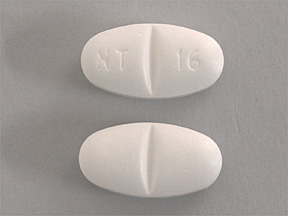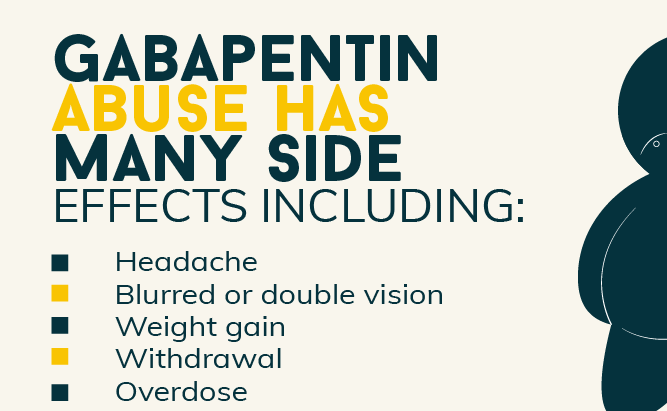Drowsiness, dizziness, loss of coordination, tiredness, blurred/double vision, unusual eye movements, or shaking (tremor) may occur. If any of these effects persist or worsen, tell your doctor or pharmacist promptly.
the cheapest Gabapentin Online
 Remember that your doctor has prescribed this medication because he or she has judged that the benefit to you is greater than the risk of side effects. Many people using this medication do not have serious side effects.
Remember that your doctor has prescribed this medication because he or she has judged that the benefit to you is greater than the risk of side effects. Many people using this medication do not have serious side effects.
Tell your doctor right away if any of these unlikely but serious side effects occur: swelling of the hands/ankles/feet, signs of infection (such as fever, cough, persistent sore throat).
A small number of people who take anticonvulsants for any condition (such as seizures, bipolar disorder, pain) may experience depression, suicidal thoughts/attempts, or other mental/mood problems. Tell your doctor immediately if you or your family/caregiver notice any unusual/sudden changes in your mood, thoughts, or behavior including signs of depression, suicidal thoughts/attempts, thoughts about harming yourself.
Get medical help right away if you have any serious side effects, including: unusual fever, swollen glands, yellowing skin/eyes, unusual tiredness, dark urine, change in the amount of urine, chest pain.
A very serious allergic reaction to this drug is rare. However, get medical help right away if you notice any symptoms of a serious allergic reaction, including: rash, itching/swelling (especially of the face/tongue/throat), severe dizziness, trouble breathing.
This is not a complete list of possible side effects. If you notice other effects not listed above, contact your doctor or pharmacist.
In the US –
Call your doctor for medical advice about side effects. You may report side effects to FDA at 1-800-FDA-1088.
In Canada – Call your doctor for medical advice about side effects. You may report side effects to Health Canada at 1-866-234-2345.
Gabapentin Overdose
If overdose is suspected, contact a poison control center or emergency room immediately. US residents can call their local poison control center at 1-800-222-1222. Canada residents can call a provincial poison control center. Symptoms of overdose may include: severe drowsiness, slurred speech, weakness.
In recent years, gabapentin, sold under the brand name Neurontin, has become abused more regularly by those seeking a calming high similar to that brought on by opioid drugs.
Gabapentin even has a street name — ”gabbies” — for recreational use. As the rate of abuse increases, many wonder “Can you overdose on gabapentin?” Here, we’ll discuss whether and how gabapentin overdose can happen and what to expect if someone has taken too much gabapentin.
Can You Overdose on Gabapentin?
Despite the well-known withdrawal side effects, it’s difficult to overdose on gabapentin. Studies have shown that even at very high levels of ingestion, people have only suffered mild to moderate physical and mental side effects that are rarely life-threatening. So far, there have been only two peer-reviewed case reports of death [1] [2] from gabapentin toxicity (related to gabapentin overdose). Despite this low statistic, gabapentin abuse as a suicide attempt has risen over the years.
While this means gabapentin is a relatively safe drug, it still should not be ingested in large amounts. However, people taking gabapentin should be aware that it does have particularly unpleasant withdrawal symptoms, even after taking it for a relatively short amount of time and at low doses.
Symptoms of Gabapentin Overdose
Most side effects of a gabapentin overdose will be related to an overall deceleration of the body’s systems. Drowsiness, muscle weakness, lethargy and drooping eyelids can be expected. Other gabapentin overdose symptoms include diarrhea and sedation. These symptoms arise because gabapentin is formulated to slow down misfirings in the brain that cause seizures.
Those who use gabapentin should be aware that stopping gabapentin abruptly can actually increase the chance of experiencing seizure activity. Suddenly removing the anti-seizure effect can cause a rebound, raising the risk of seizures. Gabapentin is a powerful drug that must be tapered slowly to avoid some of its more severe withdrawal side effects.
Gabapentin Side Effects

Along with its needed effects, a medicine may cause some unwanted effects. Although not all of these side effects may occur, if they do occur they may need medical attention.
Check with your doctor immediately if any of the following side effects occur:
More common
- Clumsiness or unsteadiness
- continuous, uncontrolled, back-and-forth, or rolling eye movements
More common in children
- Aggressive behavior or other behavior problems
- anxiety
- concentration problems and change in school performance
- crying
- depression
- false sense of well-being
- hyperactivity or increase in body movements
- rapidly changing moods
- reacting too quickly, too emotional, or overreacting
- restlessness
- suspiciousness or distrust
Less common
- Black, tarry stools
- chest pain
- chills
- cough
- depression, irritability, or other mood or mental changes
- fever
- loss of memory
- pain or swelling in the arms or legs
- painful or difficult urination
- shortness of breath
- sore throat
- sores, ulcers, or white spots on the lips or in the mouth
- swollen glands
- unusual bleeding or bruising
- unusual tiredness or weakness
Incidence not known
- Abdominal or stomach pain
- blistering, peeling, or loosening of the skin
- clay-colored stools
- coma
- confusion
- convulsions
- dark urine
- decreased urine output
- diarrhea
- dizziness
- fast or irregular heartbeat
- headache
- increased thirst
- itching or skin rash
- joint pain
- large, hive-like swelling on the face, eyelids, lips, tongue, throat, hands, legs, feet, or sex organs
- loss of appetite
- muscle ache or pain
- nausea
- red skin lesions, often with a purple center
- red, irritated eyes
- unpleasant breath odor
- vomiting of blood
- yellow eyes or skin
Some side effects may occur that usually do not need medical attention. These side effects may go away during treatment as your body adjusts to the medicine. Also, your health care professional may be able to tell you about ways to prevent or reduce some of these side effects. Check with your health care professional if any of the following side effects continue or are bothersome or if you have any questions about them:
More common
- Blurred vision
- cold or flu-like symptoms
- delusions
- dementia
- hoarseness
- lack or loss of strength
- lower back or side pain
- swelling of the hands, feet, or lower legs
- trembling or shaking
Less common or rare
- Accidental injury
- appetite increased
- back pain
- bloated or full feeling
- body aches or pain
- burning, dry, or itching eyes
- change in vision
- change in walking and balance
- clumsiness or unsteadiness
- congestion
- constipation
- cough producing mucus
- decrease in sexual desire or ability
- difficulty with breathing
- dryness of the mouth or throat
- earache
- excess air or gas in the stomach or intestines
- excessive tearing
- eye discharge
- feeling faint, dizzy, or lightheadedness
- feeling of warmth or heat
- flushed, dry skin
- flushing or redness of the skin, especially on the face and neck
- frequent urination
- fruit-like breath odor
- impaired vision
- incoordination
- increased hunger
- increased sensitivity to pain
- increased sensitivity to touch
- increased thirst
- indigestion
- noise in the ears
- pain, redness, rash, swelling, or bleeding where the skin is rubbed off
- passing gas
- redness or swelling in the ear
- redness, pain, swelling of the eye, eyelid, or inner lining of the eyelid
- runny nose
- sneezing
- sweating
- tender, swollen glands in the neck
- tightness in the chest
- tingling in the hands and feet
- trouble sleeping
- trouble swallowing
- trouble thinking
- twitching
- unexplained weight loss
- voice changes
- vomiting
- weakness or loss of strength
- weight gain
Other side effects not listed may also occur in some patients. If you notice any other effects, check with your healthcare professional.
Call your doctor for medical advice about side effects. You may report side effects to the FDA at 1-800-FDA-1088.